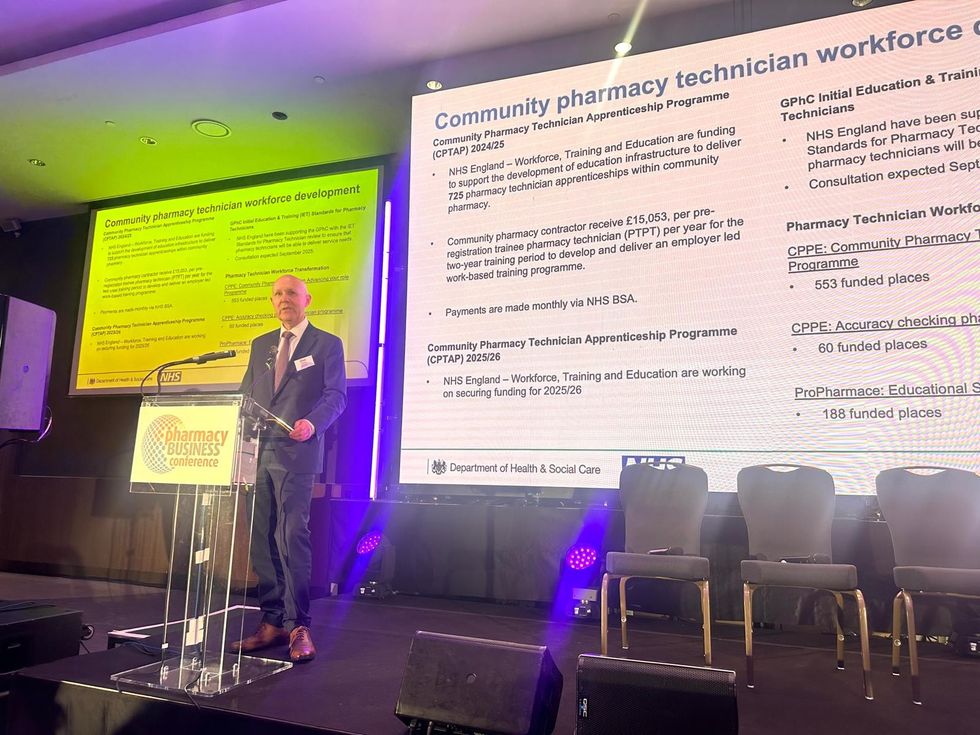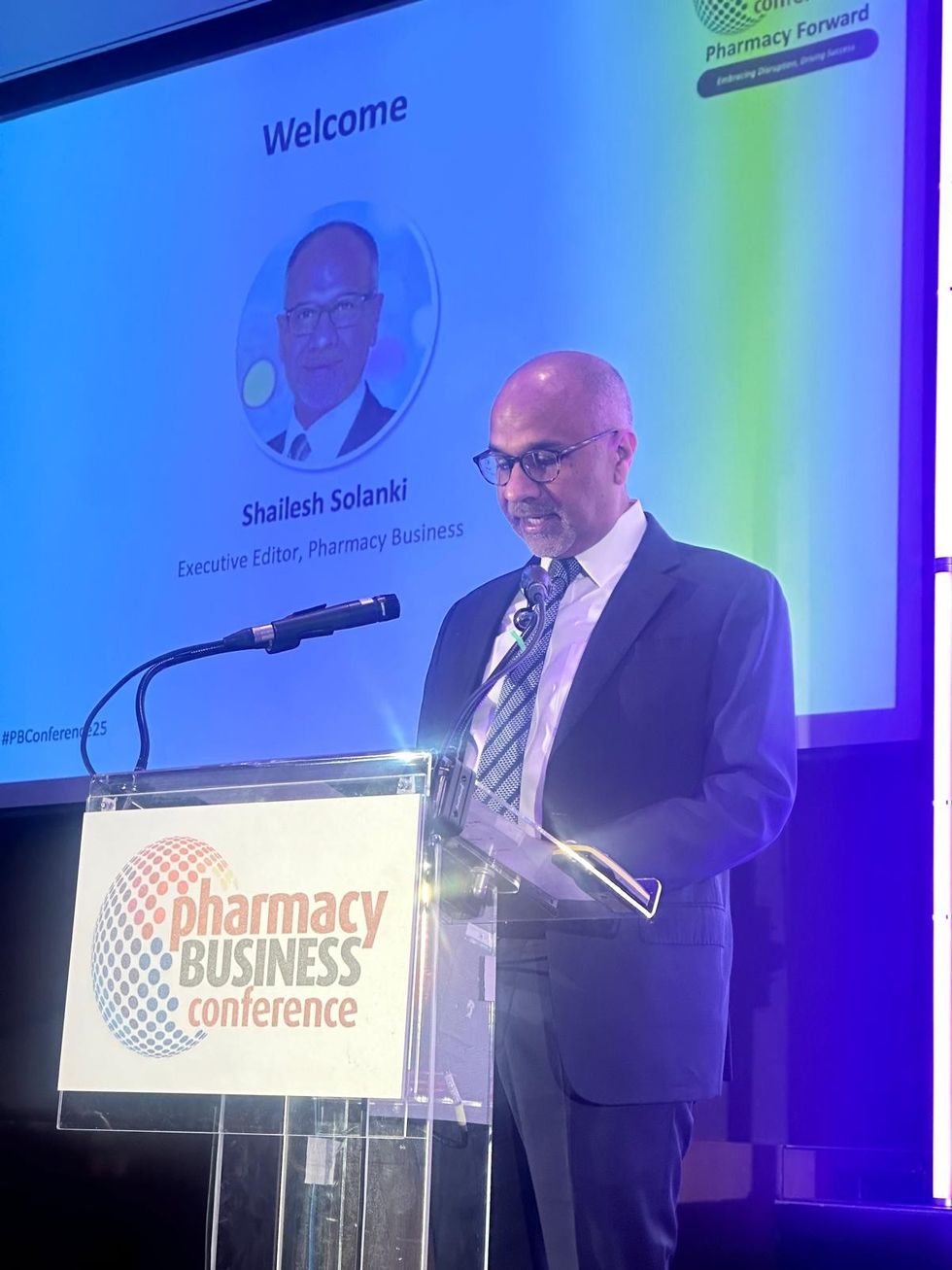As schools break for summer, Rishi Bhatia advises how community pharmacy teams can plan ahead to meet all of their back-to-school related challenges…
As families across the UK embark on the fun of the summer holidays, strategic community pharmacy teams should be planning ahead for back-to-school related challenges that will soon rear their heads.
By preparing a fully-formed offering, pharmacy teams can make sure that in the post pandemic world of 2022, they are providing their communities with as much support as possible, and having a full-service offering is a key part of that story.
Through the consistent provision of a broad range of health promotion interventions, pharmacy teams can address key back-to-school issues, like children and parental health, throughout the entire year- in turn improving the health and wellbeing of the local population.
As part of the Healthy Living Pharmacy (HLP) framework each pharmacy has a dedicated area for a health promotion zone and, as such, in the lead up to children returning to school, these areas should be used to promote key services that address issues such as colds, head lice, first aid and dental health.
Alongside promotional activity, pharmacy teams should help families make sure they have the necessary range of products that will prove useful as their children return to school. First aid kits, including anti-bacterial products, plasters, and pain relief medication should be on hand in case minor ailments occur on the playground.
Pharmacy teams should also make sure they have plenty of cold medication stocked, as the back-to-school season so often sees a rise in cold infections.
What’s more, with the sunny weather September can often bring, families should safeguard their little ones by ensuring they have sun cream and after-sun products on hand. Dental health is also an issue that is paramount in the back-to-school period, with pharmacy teams being able to recommend child-friendly toothbrush and toothpaste options.
For families taking a more holistic approach to health, community pharmacy teams can advise on vitamins and supplements that children can take – helping to boost their health and wellbeing in the all important busy period of the new school year.
In conjunction with products, community pharmacy’s ability to provide vaccinations, especially for chickenpox, which can see a spike throughout the back-to-school period, is a vital service for communities across the UK.
As a member of Numark, the UK’s largest community pharmacy member organisation, which is also in fact bigger than Boots, my pharmacy team benefits from being able to offer low-cost own brand alternatives for the back-to-school season – something which is instrumental as families struggle with the cost of- living crisis this year.
We also receive marketing support, whether that be in the form of Point of Sale (POS) materials or training on customer service tactics, helping our pharmacy teams confidently approach the topic of children’s health.
But, of course, in the post pandemic setting of 2022 the back-to-school category differs from other years, with the market having seen monumental shifts over the last three years.
Historically the return to school period sees a focus on colds, head lice and general children’s health conditions, however this year the emphasis is on sanitising and the importance of engaging children on hygiene related issues.
In a bid to ensure another Covid wave doesn’t rear its head, schools, families, and healthcare providers should be placing onus on the value of encouraging children to prioritise hygiene as they return to school.
With children washing their hands more often, there also comes a risk of an increase in skincare issues such as contact dermatitis, as children’s hands are set to more regularly come into contact with a wide and varied range of soaps. For children with sensitive skin, community pharmacy teams are well placed to support by signposting products and services.
The focus on Infection Prevention and Control (IPC) has importance outside of the parameters of Covid, too. With infections such as monkeypox on the rise, community pharmacy (as the third pillar of the NHS) needs to adhere to strict procedures and encourage IPC in the communities we serve.
For monkeypox, we know the main form of transmission is touch, as well as coughing and sneezing, indicating how IPC remains paramount this back-to school season. When planning for the back to-school period, community pharmacy teams should also keep in mind the locality of their pharmacy. Data shows that the health of young children has improved over the past 30 years, however, there remains to be substantial health inequalities within communities, which in turns begets further issues for children returning to school.
For example, children who are living in deprived areas are statistically more likely to have poor diets, leading to an increased number of obese children, and, when coupled with the potential for ill-managed diabetes, means that many children face poor health outcomes.
Additionally, data from the Royal College of Paediatrics and Child Health , showcases those children who live in deprived areas are also more prone to mental health issues. As a community-facing healthcare provider, pharmacy teams are ideally suited to spot health related issues in deprived areas and are well-equipped to host accessible one-to-one discussions with families who require additional support.
Whilst many will think that families’ primary focus as they return to school is worrying about uniforms and pencil cases, the above data highlights how, for many, the back-to-school period can bring forth a range of key health issues.
Against the backdrop of the cost-of-living crisis, it’s vital that community pharmacy seeks to pharmacy like never before through innovation and providing more efficient support to the wider community.
Ultimately, by really listening to our communities during this period, not only can we safeguard the health of children as they return to school, but we can consolidate the crucial role of pharmacy to the entire healthcare ecosystem.
(Rishi Bhatia is a Numark Pharmacy member and superintendent pharmacist at RB Healthcare Group.)














 Health Secretary Wes Streeting addresses Pharmacy Conference via video
Health Secretary Wes Streeting addresses Pharmacy Conference via video  David Webb, chief pharmaceutical officer of NHS England
David Webb, chief pharmaceutical officer of NHS England Shailesh Solanki, executive editor of Pharmacy Business
Shailesh Solanki, executive editor of Pharmacy Business L-R: Yasmin Karsan, Pritee Panchmatia and Fin McCaul
L-R: Yasmin Karsan, Pritee Panchmatia and Fin McCaul  L-R: Baba Akomolafe, Rachna Chhatralia, Patricia Tigenoah-Ojo and Raj Matharu
L-R: Baba Akomolafe, Rachna Chhatralia, Patricia Tigenoah-Ojo and Raj Matharu L- R: Nicola Stockmann, Robert Townsend, Atul Patel and Amerjit Singh
L- R: Nicola Stockmann, Robert Townsend, Atul Patel and Amerjit Singh Wole Ososami, lead pharmacist at Westbury Chemist
Wole Ososami, lead pharmacist at Westbury Chemist

